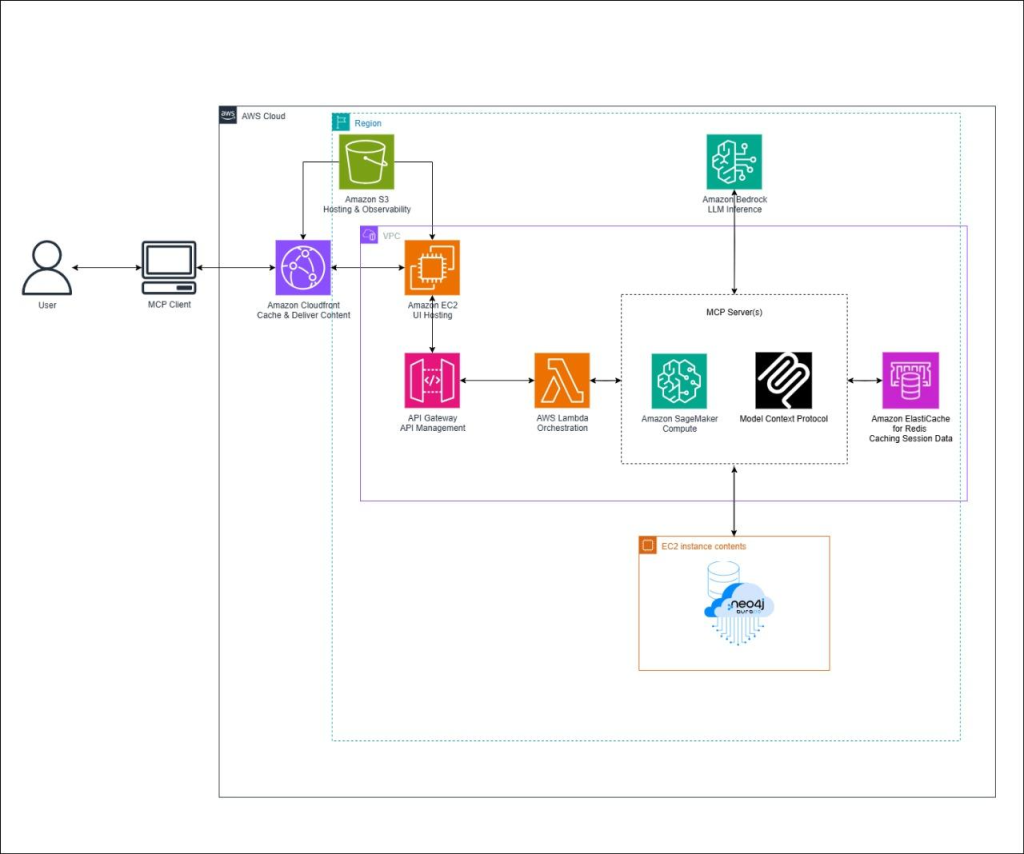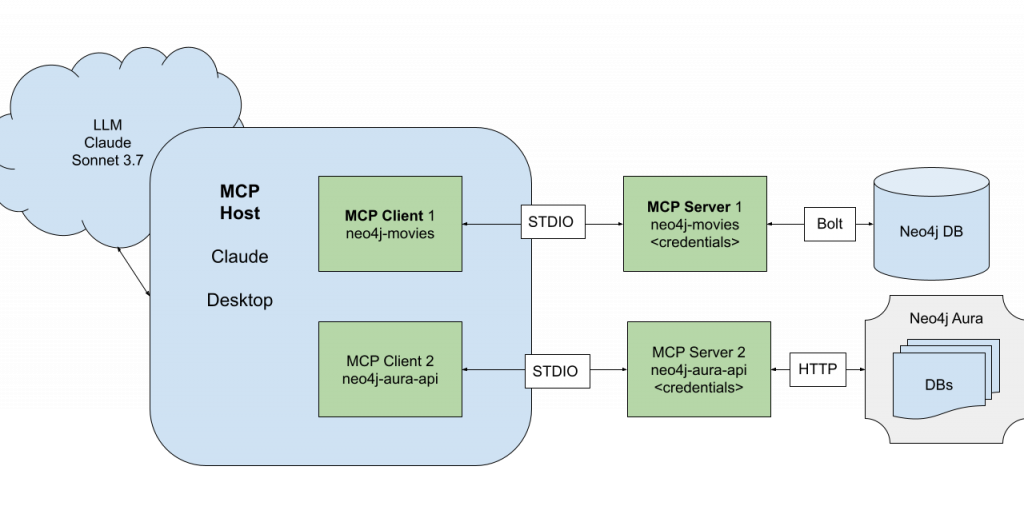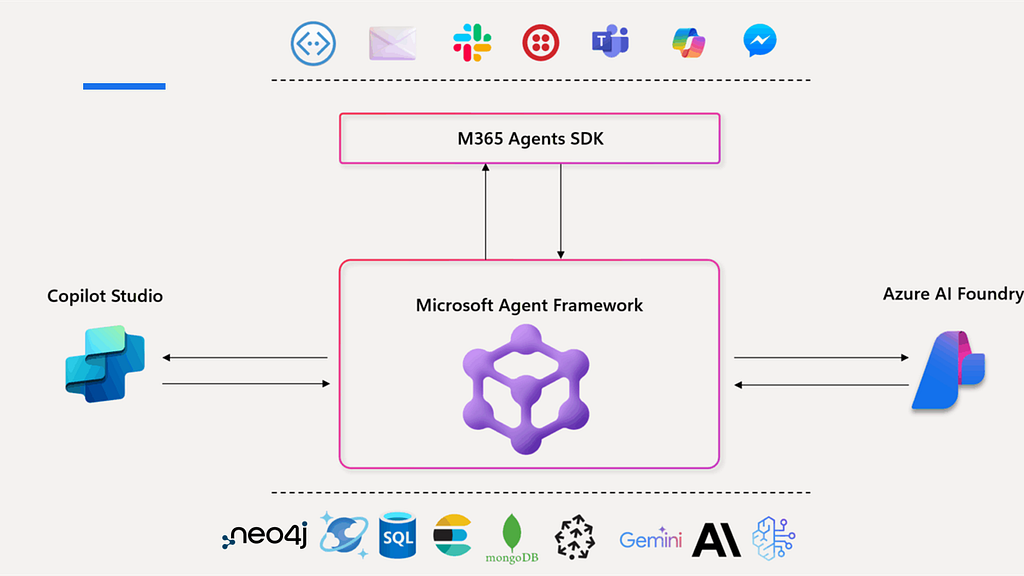Reinventing Retail: How Neo4j, Oneture, and AWS Can Power Multi-Agent Store Advisers
6 min read

Walk into a jewelry store in Delhi during the festive season. The counters sparkle with hundreds of designs — bangles, necklaces, rings — each with subtle differences in weight, purity, and style. A customer points to a necklace and asks, “Do you have something similar, but lighter, and maybe in a rose-gold finish?”
The sales associate hesitates. Despite years of experience, it’s impossible to remember every design across thousands of SKUs. The customer waits, patience thinning. Finally, after some back-and-forth, she leaves the store undecided.
Now imagine the same scene in a busy shoe store in Bengaluru. Rows of sneakers and formals line the shelves. A customer says, “I want something like this running shoe, but better cushioning and waterproof — I’m preparing for monsoon jogs.” The associate flips through options mentally, but can’t instantly filter by such layered requirements. Another opportunity lost.
These aren’t rare stories. They happen every single day. Despite the global retail industry crossing $4.9 trillion in sales (Statista, 2024), inefficiencies cost billions. Studies reveal that 70 percent of customers walk out without buying because they can’t find the right product, while 85 percent of associates struggle to offer tailored advice across massive catalogs.
Retail, for all its growth, is still broken.
The Future: A Team of Digital Store Advisers
Now picture this differently. In that same jewelry shop, when the customer asks for a lighter rose-gold necklace, a Discovery Agent instantly searches through design families. A Comparison Agent explains the difference in purity, weight, and price. An Inventory Agent confirms availability across nearby branches. An Experience Orchestrator gently suggests a matching pair of earrings for the wedding season.
In the shoe store, a Product Agent filters waterproof, cushioned models, recalls that the customer last bought wide-fit sizes, and presents two ideal options. If the stock is out, it suggests a pre-order or a close alternative in the same price band.
What was once a frustrating interaction becomes a consultative journey in which the customer feels guided, understood, and valued.
This is the vision of a multi-agent store adviser, built using GenAI on Amazon Bedrock and Amazon SageMaker, with Neo4j knowledge graphs, and deployed with architectural expertise from Oneture Technologies, a boutique solutions partner specializing in retail and financial services.
Why Traditional Tech Falls Short
For years, retailers tried to plug this gap with loyalty programs, predictive ML models, or catalog apps. But traditional ML has natural limitations. It can say, “Customers who bought X also bought Y,” but it can’t:
- Manage a dynamic dialogue where the customer changes preferences midway
- Retain contextual memory across visits (the customer who asked for platinum bangles earlier may now be exploring wedding jewelry sets)
- Adapt in real time as new preferences or constraints appear
GenAI goes further. It understands natural language, interprets intent, and keeps track of context. With multi-agent design, the intelligence gets distributed: One agent specializes in product catalogs, another in inventory, another in customer preferences, and another in advisory storytelling.
It’s like staffing your store not with one generalist but with a whole team of invisible specialists, working seamlessly together.
The Knowledge Graph Advantage
The real secret lies underneath — the data layer. Retail isn’t just about SKUs; it’s about how those SKUs connect. Jewelry can be classified by purity, weight, design, and occasion. Shoes can be classified by material, cushioning, weather-suitability, and brand positioning. Beauty can be classified by shade, compatibility, and ingredients.
Traditional databases struggle here. Relational systems get bogged down by JOINs. NoSQL scales, but lacks semantic depth.
Neo4j brings in the missing piece: relationships as first-class citizens. It doesn’t just store data; it stores meaning.
So, when a customer asks for “alternatives to this gold bangle in a lighter weight,” Neo4j traverses:
- Similar design families
- Compatible price points
- Seasonal demand trends (festive vs. everyday wear)
- Complementary products (earrings, pendants)
Queries run in milliseconds, thanks to single-hop traversals. The system even learns dynamically: If many customers start pairing a certain sneaker with waterproof sprays, that becomes a weighted edge in the graph.
The outcome is striking:
- Precision rises to 92 percent relevance (vs. ~65 percent with SQL/ML).
- Recall improves 3x, surfacing alternatives the customer may never have discovered.
- Latency drops to near-instant, making it viable in-store.
Amazon Bedrock + Oneture: Turning Complexity Into Simplicity
If Neo4j is the brain, Amazon Bedrock is the language processor that translates messy human speech into actionable queries.
A customer saying, “I want something waterproof for monsoon jogs, but not too heavy” gets converted into structured attributes:
{
"attributes": ["waterproof", "lightweight", "cushioned"],
"occasion": "sports",
"priority": "durability",
"context": "seasonal_monsoon"
}Code language: JSON / JSON with Comments (json)On top of this, with its focus on delivering advanced analytics, AI/ML, GenAI, and graph-driven insights, Oneture’s multi-agent architecture orchestrates specialized roles:
- Product Discovery Agent extracts and interprets attributes.
- Inventory Agent checks real-time availability across warehouses or branches.
- Comparison Agent explains technical or material differences in everyday language.
- Experience Orchestrator manages flow, knows when to upsell, when to build trust.
Together, they ensure the customer feels they’re talking to a trusted adviser, not a search box.
The Architecture in Action
At this point, it helps to see how the moving parts connect.

Customer queries flow through Amazon CloudFront and API Gateway into the MCP server, where Amazon Bedrock powers natural language understanding, Amazon SageMaker executes specialized agents, and Neo4j provides real-time knowledge graph traversal. Amazon ElasticCache stores session context, ensuring continuity. The result is a seamless orchestration of discovery, comparison, inventory, and advisory agents that deliver personalized retail recommendations in real time.
The diagram reinforces that this isn’t a monolithic black-box AI but a coordinated system of specialized agents and data intelligence working in harmony.
Learning From Every Interaction
What makes this system revolutionary is how it improves over time. Unlike old models needing periodic retraining, the multi-agent store adviser learns continuously:
- Every customer interaction becomes training data.
- Good recommendations strengthen patterns; poor ones trigger immediate refinement.
- Over weeks, the system evolves — from basic lookups to smooth conversations, then to sophisticated upselling and predictive suggestions.
Human associates also become part of the loop. A jewelry salesperson might validate why certain bangles pair better with a bridal set. A shoe associate might note that Bengaluru customers prefer lighter soles during monsoon season. This human-AI collaboration enriches the system with cultural and regional insights.
The result is a self-improving institutional memory: “Customers who ask for rose-gold usually prefer 18k purity,” or “wide-fit sneakers sell more during monsoon promotions.”
The Business Impact
For retailers, especially in India, where diversity is vast and customer expectations are high, the payoff is huge:
- Conversion rates soar — Customers find what they need without frustration.
- Operational efficiency rises — Inventory moves smarter, and dead stock reduces.
- Staff productivity improves — Associates spend less time memorizing catalogs and more time building relationships.
- Customer loyalty deepens — People return when they feel understood and advised with care.
Whether it’s the high-value world of gold jewelry, the fast-moving footwear market, or the expansive beauty segment, the multi-agent store adviser brings personalization, efficiency, and intelligence to every aisle.
Ready to Transform Your Retail Experience?
Retail is entering a new era — one where AI-powered store advisers don’t just assist customers — they truly understand them. With Neo4j’s knowledge graphs, Amazon Bedrock’s generative intelligence, and Oneture’s multi-agent architecture, the shopping journey becomes seamless, personal, and efficient. Neo4j, Amazon, and Oneture Technologies are helping forward-looking retailers bring this vision to life. If you’d like to explore how this solution can fit your business, see a live demo, or discuss a pilot for your stores, contact Neo4j today to reimagine what your customers experience the moment they walk into your store.











